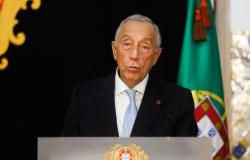At Wednesday’s meeting of the permanent representatives of countries in the European Union, the Belgian presidency presented a new draft of rules for the import of agricultural commodities from Ukraine. Compared to last week’s agreement, it provides a greater degree of protection for the twenty-seven countries.
But nothing changes that duty-free trade with Ukraine, which began in 2022 and was a gesture of solidarity towards the war-torn country, will continue. However, duty-free imports will have their ceilings, which apply to poultry, eggs, sugar, oats, corn, semolina, honey and groats.
The Czech Republic, like France, pushed for a maximum volume for duty-free imports to be set for wheat and barley as well, but they are not included in Belgium’s proposal.
“The change in the legislative text consists in supplementing the reference period with the second half of 2021,” describes the main change Alice Krutilová from the Permanent Representation of the Czech Republic to the EU in Brussels.
While in the original proposal the ceiling was calculated from the average of 2022 and 2023, the new wording also counts the second half of 2021 as the reference period, when import volumes were often lower. In fact, this small change reduces the volume of goods that Ukraine could export to the EU on much more favorable terms.
For now, however, this is an unapproved proposal that will have to be finally approved by the European Parliament and the Council.
“The Czech Republic is able, in the spirit of compromise with the other member states, to agree to the compromise text of the Belgian presidency,” Krutilová indicated.
So that we are not stricter than before the war
Minister of Agriculture Marek Výborný told the SZ Byznys editors on Thursday that in principle he will not block the adoption of the proposal, but it will depend on specific details. However, he had reservations about last week’s proposal.
“In my opinion, corn should not be there at all, because we would be stricter on Ukraine than before the war and we would go beyond the association agreement we had before the war. I don’t understand that at all,” he said.
Corn is still in the draft. According to the editorial calculation of Eurostat’s foreign trade data, the permitted limit of corn imports into the EU would correspond to roughly 2.8 million tons per quarter under the newly proposed rules. This is really less than in some pre-war years. In 2019, 14.2 million tons of corn were imported from Ukraine annually, i.e. an average of 3.6 million tons.
According to Výborný, however, the proposal is also illogical in other respects. “Another absurdity is honey. At a time when we have 80 percent of honey in Europe from China, here we are dealing with protective measures against Ukrainian honey. That makes no sense at all,” he told the editors.
Politicians in the European Union are under great pressure from agrarian organizations. In particular, farmers from countries directly bordering or close to Ukraine are demanding a much stricter crackdown on imports from Ukraine, but also from Russia, Belarus or some transit countries through which cheap grain reaches the European market.
In 2021, 7.9 million tons of grain were imported into the countries of the European Union, in 2022 over 15.9 million and in 2023 more than 19.7 million tons. However, some politicians point out that imports from Ukraine have been decreasing in recent months, while imports from the Russian Federation are increasing, including indirectly via Turkey, Belarus or Kazakhstan.
This is confirmed by Eurostat data. In 2023, over 1.5 million tons of cereals were exported directly from Russia to the European twenty-seven countries. This is an increase of approximately 50% compared to 2021 and 2022, and even 150% compared to 2020.
Europeans are buying cheap Russian wheat, the government wants to check it
The European Commission has already proposed introducing a 50 percent tariff on imports of cereals and oilseeds from Russia and Belarus. Among the five EU member states, the Czech Republic also requested this in a letter to Brussels.
“Russian grain has nothing to do in Europe, we are only indirectly supporting the aggressor,” said Minister of Agriculture Marek Výborný. “I just want to remind you that this is a tariff of 95 euros per ton or 50 percent, which effectively means that Russian and Belarusian grain will not be in Europe because it is unsaleable at that point, and that was our goal,” he added. Member states could approve the proposal within a month, after which it should come into force soon. The consent of the European Parliament is not needed in this case.
Although imports of agrarian commodities from Ukraine to the EU are many times higher than from Russia, it cannot definitely be said that Ukrainian grain is to blame for low prices. These are formed on commodity exchanges.
“The prices for Europe determine and will determine the prices in the Black Sea, that is the cheapest buying point,” explains Ota Gärtner, business director of Top Ekos, which deals with the international trade of agrarian commodities.
“Europe has to compete with Russian and Ukrainian prices at which it exports via the Black Sea,” he told SZ Byznys in December, adding: “At the moment, Russian prices are the lowest, so Russia wins globally in all tenders. It has a huge overproduction, it offers a lower price for wheat and corn.”
Tags: Brussels partly backing pressure farmers tighten imports Ukraine
-






